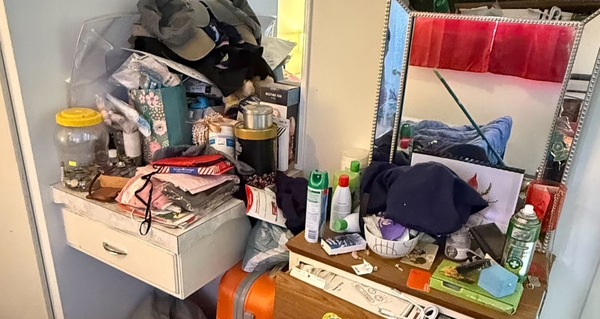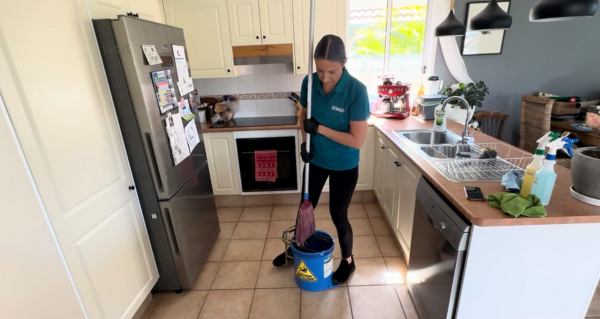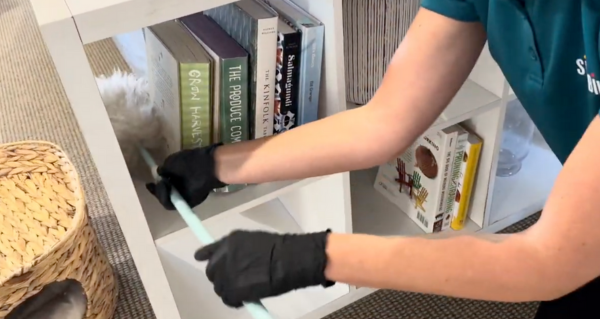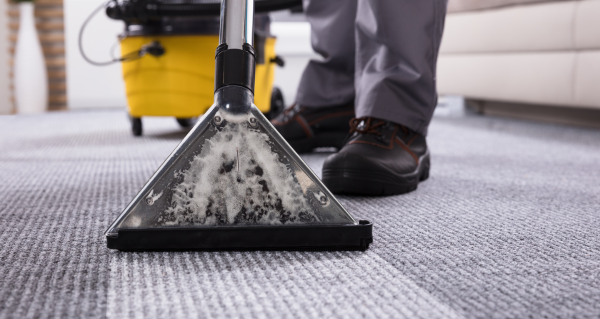Six health benefits to a clean home
Who doesn’t love a clean home? I know I do! There’s something about having a clean home that just relaxes me. I can literally feel my shoulders drop and my breathing slow down when my home is clean.
Not only does it reduce my anxiety and stress levels, but it also allows me to spend quality time with my family - in particular when my son asks me to play with him. I can focus all my energy on what I'm doing with him, rather than worry about cleaning the kitchen or having to vacuum or mop the floor! I know he appreciates that too because he gets all of me, not a distracted mother who wants to pull her hair out. A ‘love bomb’ - so to speak - of quality time with his Mumma.
This got me thinking about how others can benefit from having a clean home. Below are six (6) health reasons which you may not have considered before now, for having a clean and well-maintained home.
Benefit 1: Reduce Stress & Anxiety
If you’re anything like me, you’ll love the idea of reducing stress and anxiety. Just as I mentioned above, having a clean home does this for me and will most likely do the same for you. It can bring some calm to your life and can make maneuvering and finding things a whole lot easier too.
Benefit 2: Reduce Allergies, Asthma Symptoms & Breathe Easier
Removing dust particles by regularly dusting and vacuuming means reducing the chance of allergies and asthma symptoms. I’m a hayfever and asthma sufferer and I can say first hand that keeping my home free (as much as possible) from dust helps keeps my allergies and asthma at bay.
Plus, did you know that indoor air quality can often be worse than outdoor? Indoor pollutants in dust and air that are generated from sources like tobacco smoke, furniture, air fresheners, electrical equipment including computers and printers, from cooking and even from people can impact the air quality in your home.
But don’t be too alarmed, you can improve indoor air quality by keeping floors fresh, maintaining a healthy level of humidity, making your home a no-smoking zone and avoiding synthetic fragrances - natural is best. Regular cleaning of air conditioners and filters will also help.
Benefit 3: Lower the Risk of Injury
The easiest method to prevent trips and falls in your home is to keep your home clean and tidy. Minimising clutter, picking up toys and personal items, and putting them out of harm's way will make a huge difference in the overall safety of your home.
Benefit 4: Prevent Infection
Germs hang out where you do - especially spots that everyone touches like telephones, coffee tables, TV remotes and light switches. When you use disinfectants throughout your home you reduce the spread of germs. If you can, vacuum crumbs and clean up spills right away so bacteria doesn’t have the chance to grow in your carpets and furniture. It’s also a good idea to keep food and snacks out of bedrooms as crumbs attract mould and bacteria. Washing bed linen regularly will also prevent the spread of germs and should be done once a week - more often if you are sick.
Benefit 5: Avoid Pests
Yuck! I do NOT love cockroaches. A friend of mine goes so far as to run out of the room, leave an outdoor restaurant, or cross the street if one crosses her path. They don’t bother me that much but I certainly don’t like to see them in my home - especially in the kitchen where we prepare our family meals.
Mice and rats also love when people leave leftovers out for them - what a lovely treat! And clothing or linen heaped in a pile can be seen as the perfect place for a rodent nest. To avoid pests like these in your home, pack away or throw out food items that you no longer want or that have expired, wipe down kitchen benches after you’ve used them, and try to stay on top of your laundry.
Benefit 6: Reduce Mould
Many different types of mould exist and all have the potential to cause health problems. You’ve probably come across some sort of mould in your home before - it’s not uncommon. You’ll find mould often grows indoors on wet or moist areas lacking adequate ventilation, including walls, wallpaper, ceilings, bathroom tiles, carpets, insulation material and wood.
The key to preventing mould growth is reducing dampness in your home. You can do this by turning on exhaust fans - particularly when bathing, showering, cooking, doing laundry and drying clothes - and opening windows (when the weather permits) to improve cross-ventilation.
In summary, there’s more to a clean home than meets the eye. It’s not just about how your home ‘looks’ but how it makes you ‘feel’, and how it can impact your health, the health of your family and your guests.
Did you know that NDIS can provide funding support for cleaning your home? If you’re unable to perform a task, like vacuuming or cleaning your bathroom or kitchen, because your disability makes it impossible, then the NDIS can fund it. The support category for domestic cleaning falls under ‘Assistance with Daily Living’. If you have a budget allocated to this category in your NDIS plan, you can use it for this support (provided you meet the criteria).

































